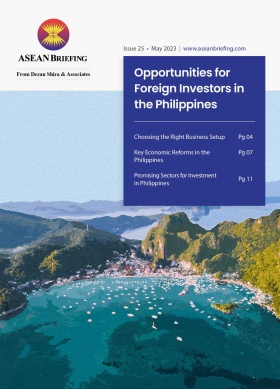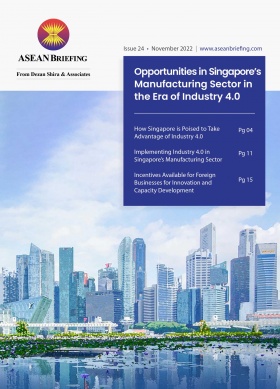Audit and Compliance in Singapore: A Guide for Foreign Investors
Singapore makes it obligatory for registered businesses to hold annual general meetings, file annual financial statements, and be officially audited. Businesses or business groups that are classified as ‘small’ are exempted from official audits.
According to Singapore’s Companies Act, the primary legislation regulating the conduct of companies in the country, companies must comply with the annual filing requirements of the Accounting and Corporate Regulatory Agency (ACRA), as well as the Inland Revenue of Singapore (IRAS).
According to Singapore’s Companies Act, the primary legislation regulating the conduct of companies in the country, companies must comply with annual filing requirements of the Accounting and Corporate Regulatory Agency (ACRA), as well as the Inland Revenue of Singapore (IRAS).Foreign investors should use the services of registered local advisors to ensure they stay compliant with the relevant regulations.
Who is obligated to be audited?
The Companies Act states that private limited companies must have their financial statements audited by a qualified public accountant at least once a year.
Annual General Meeting
An annual general meeting (AGM) is obligatory for a Singapore company. The AGM can be held anywhere in the world, whereby the shareholders discuss the following items:
- Approval of the audit reports;
- Re-elect directors (if required);
- Re-appointing auditors;
- Declare dividends; and
- Transact other
AGMs are to be held:
- Once every year;
- Within 15 months from the previous AGM; or
- Six months from the FYE date.
Appointing auditors
Within three months of company incorporation, company directors must appoint an auditor, unless they fall under the following criteria:
- Annual turnover is less than S$5 million (US$3.7 million);
- The total number of shareholders is less than 20; and
- All shareholders are individuals and not corporations.
The role of the auditor is to report if the company’s financial statements comply with the relevant financial reporting standards and to provide an objective analysis of the company’s financial performance. Additionally, only public accountants registered with ACRA can conduct company audits.
Fiscal year
All companies in Singapore should determine a financial year-end (FYE) (that is, the last day of the company’s first financial year) after incorporation.
After the FYE, the company must hold its AGM as well as file its annual returns (AR). Listed companies must file their AR within five months and non-listed companies within seven months.
Many companies choose December 31 for their FYE while others have chosen the end of any quarter (March 31, June 30, and September 30).
In deciding an FYE, companies should consider whether the chosen date affects their eligibility to receive tax incentives. Starting in 2020, qualified new companies can receive a 75 percent tax exemption on the first S$100,000 (US$ 73,747) of chargeable income during the first three consecutive years. There is a 50 percent tax exemption on the next S$100,000.
For certain companies, it is, therefore, more advantageous to have December 31 as their fiscal year-end date.
Audit exemptions
In July 2015, ACRA amended the Companies Act through the Small Company Concept. This amended the audit exemption criteria for businesses.
Companies that qualify as ‘small’ are exempted from having their accounts audited and from appointing an auditor.
They first need to fulfil two of the three following criteria:
- Total revenue must not exceed S$10 million (US$7.4 million);
- Total number of full-time employees must not exceed 50; or
- Total assets of the company should not exceed S$10 million (US$7.4 million).
Group company audits
Holding companies and their subsidiaries can also be exempt from audit compliance if they qualify as a ‘small group’. To qualify, the group (comprising of all the companies) should fall under two of the three criteria as written above for small companies. Businesses that are exempt from audits are advised to prepare annual financial statements.
Accounting standards
Companies in Singapore that have a financial period starting after January 1, 2003 must use the Singapore Financial Reporting Standards (SFRS), which are based on the International Financial Reporting Standards (IFRS).
Financial statements are prepared under the accrual basis of accounting, which is one of the main principles of accounting standards in Singapore. Under this accounting method, revenues are recorded when a transaction occurs rather than when the payment is received.
When the International Accounting Standards Board (IASB) issued the IFRS for small entities (SE) in 2009, the Accounting Standards Council of Singapore introduced the SFRS for small entities in 2010.
Businesses that are eligible to apply for SFRS for SEs are:
- Classified as a small entity, meaning they must also qualify in two of the three aforementioned criteria under audit exemptions, being:
- Total revenue of not more than S$10 million (US$7.4 million);
- Total assets of not more than S$10 million (US$7.4 million); or
- Total number of employees of not more than 50.
- The company is not publicly accountable; and
- It publishes financial statements from external.
Some of the advantages for small companies abiding by the SFRS for SE are that the process for preparing a company’s financial statements is much simpler, and there is a reduction in the disclosure requirements.
Annual reports
Singapore’s authorities require companies to submit their estimated chargeable income within three months from the financial year-end.
This accounting should include the following:
- Statement of comprehensive income (profit and loss accounting);
- Company details;
- Balance sheet;
- Shareholder details;
- Dates of annual returns and AGM;
- Detail of company officers;
- Cash flow statement; and
- Statement of changes in equity.
Penalties for non-compliance
Businesses that fail to hold an AGM and are late to file financial statements are at risk of fines, summons, and even an arrest warrant issued by ACRA.
Failing to file tax returns for two years or more will result in a Court summons, and upon conviction, the company will be ordered to pay a penalty that is twice the amount of tax and a fine of up to S$1,000 (US$742).
In addition, as of January 14, 2022, the penalty for late annual lodgements beyond three months by Singapore-incorporated companies, variable capital companies, and limited liability partnerships will go up to S$600 (US$442).
Choosing between SFRS and SFRS for SE
Companies that qualify for SFRS for SE must consider a few factors before adopting SFRS for SE. Companies should consider their growth plans and the nature of their business as those that are on the verge of breaching the size threshold better than using full SFRS. Businesses that plan to go for an IPO for example will exceed the size threshold in terms of assets, revenue, and total employees.
Businesses must also consider the cost of training employees as well as the cost of accounting software, particularly if the business belongs to a group or is held by parent companies that follow the full SFRS. The cost of adopting SFRS for SE could make the business inefficient. Moreover, financial institutions and lenders often demand full SFRS statements.
SFRS for SE is ideal for startups whose financial statements will not be used by external parties.
About Us
ASEAN Briefing is produced by Dezan Shira & Associates. The firm assists foreign investors throughout Asia and maintains offices throughout ASEAN, including in Singapore, Hanoi, Ho Chi Minh City, and Da Nang in Vietnam, in addition to Jakarta, in Indonesia. We also have partner firms in Malaysia, the Philippines, and Thailand as well as our practices in China and India. Please contact us at asean@dezshira.com or visit our website at www.dezshira.com.








